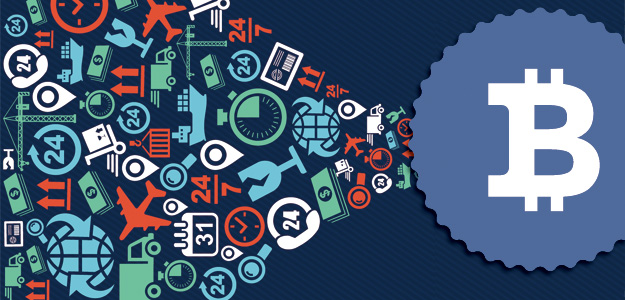
First of all, it’s important to understand what makes Bitcoin different from existing electronic currencies. We’ve all hard of Paypal or similar payment services, which allows you to purchase goods on the internet. Most of these existing services however are based on existing currencies, like US dollars, or British pounds. There was also a website called e-gold which sold an online currency based on grams of gold. Or there are virtual currencies in some online video games, like World of Warcraft. However, all of these are typicallycentralized services. That is, there is some central authority (like the Paypal server, or the World of Warcraft game), that is in charge of generating and regulating the currency.
In this way, the most fundamental difference between Bitcoin and these other centralized electronic currencies is that Bitcoin isdecentralized. A simple way to look at it is that Bitcoin does for currency what BitTorrent did for file sharing. It’s adistributed currency, enabled through a peer-to-peer network. That is, everyone who connects to BitTorrent can help share files, and there is no way for a government to shut down one computer to disrupt it. In a similar way, Bitcoin also makes everyone who participates a part of the system, and there is no way for a government to control the currency.
The important thing about a currency outside of government control is that it makes seizing money, or manipulating money supply, difficult. Transactions can be conducted anonymously over the internet, so it is hard for a government to track spending. Of course, this seems to aid accomplishing many illegal activities, like buying drugs over the internet or laundering money for criminal organizations. The most famous example is Silk Road, an online anonymous drug marketplace that was recently shut down (because its owner was sloppy in covering his tracks). However, there are also important beneficial applications of Bitcoin, especially in oppressive countries. It allows people to freely spend and exchange money in oppressed countries without government interference or knowledge. So just like any technology, Bitcoin also is a double-edged sword in that it can make life better for some, but perhaps aid also in those with degenerate motivations.
Of course, there is much more to be said about Bitcoin, and especially the strange computer science that makes it possible, but hopefully you now understand from a high-level what Bitcoin is, and why it is different. The main idea is that it is to currency what BitTorrent is to filesharing: A distributed currency outside government control. It is an interesting and thought-provoking development, one that is clearly important and that could have an increasing impact on the world. Who knows what it will lead to next?